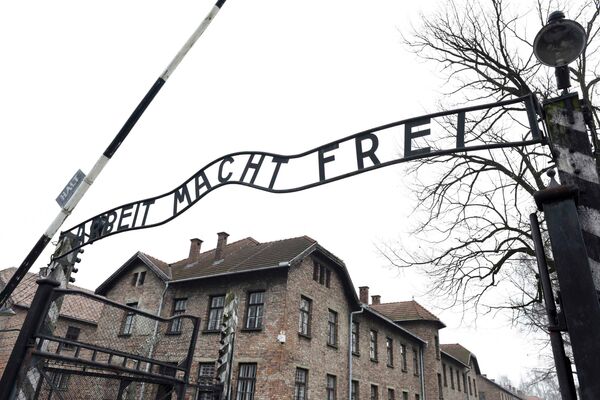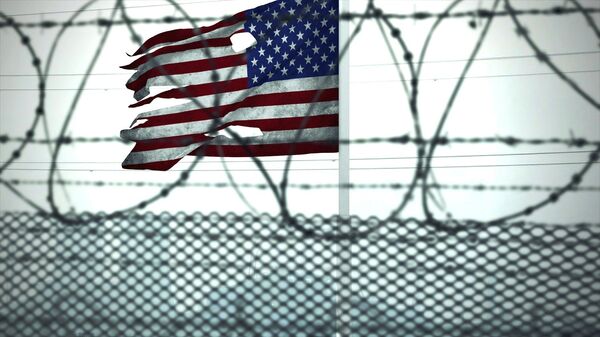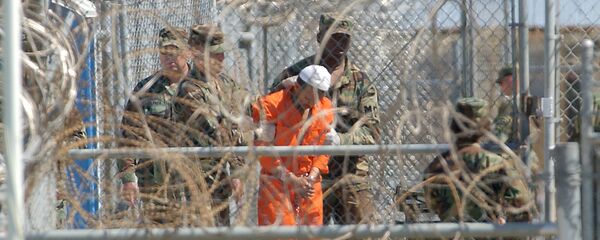The duo in question is James Mitchell and Bruce Jessen. Together, they played a pivotal role in the CIA's torture efforts in the wake of the September 11 2001 terror attacks — on top of designing the program itself, they personally waterboarded Abu Zubaydah, a detainee who effectively served as guinea pig for the various techniques that would be employed over the subsequent decade. His punishments included staying naked for lengthy periods and in stress positions, and periods of sleep deprivation lasting days.
You know you're on shaky ground when your own defense compares you to the makers of Nazi poison gas. https://t.co/D3m3XEUH3q
— ACLU National (@ACLU) July 25, 2017
Moreover, the company they founded to contract with the CIA on "enhanced interrogations" earned them US$81 million, according to the 2014 Senate torture report, which concluded the program was a "stain" on the US' "values and history."
No US official involved in the ordering, implementation or performance of the program has lost their job, much less been prosecuted — despite the country being obligated to prosecute torture — and not a single victim has received redress as of July 2017. However, as Mitchell and Jessen are mere US citizens, they are open to civil (albeit not criminal) liability — and three survivors of the CIA torture program, Suleiman Abdullah Salim, Mohamed Ahmed Ben Soud, along with the family of Gul Rahman, are seeking justice (Rahman died from hypothermia in CIA custody in November 2002, in an undisclosed prison in Afghanistan).
The devilish duo has twice attempted unsuccessfully to shut down the lawsuit — most recently, they failed to convince a federal judge in Washington state to dismiss the action. Now, their defense team have issued a bewildering filing ahead of a critical July 28 hearing that will cement their trial — Mitchell and Jessen "simply did business with the CIA pursuant to their contracts" just as contractors to Nazi Germany did.

Their extraordinary reasoning hinges on a legal principle they claim was established in a UK military court in 1946 — that even if the pair played an integral part in the supply and use of torture methods, they had no influence over the CIA's decision to use them, and thus can't be held accountable.
I'm truly embarrassed being of the same profession as Mitchell and Jessen https://t.co/BvzP0zjNiO
— Joar Ø. Halvorsen (@joarhalvorsen) July 26, 2017
In that post-war case, several representatives of Tesch & Stabenow, the German chemical firm that supplied poison gas such as Zyklon B for use in Auschwitz and other concentration camps, faced prosecution for their alleged role in Adolf Hitler's Final Solution. In the end, the military court judged that gassing technicians at the company, while "integral part[s] of the supply and use of the poison gas" were ultimately "without influence" over whether and how the gas was used.
"As independent contractors serving on a larger interrogation team, Defendants lacked authority to control, prevent or modify the CIA's decision to use [torture] on detainees," the filing reads.
Adding to the defendants' woes, the American Civil Liberties Union, which is representing the plaintiffs in court, have responded to the news by noting that the Nuremberg tribunals in fact established the opposite to what Mitchell and Jessen's lawyers claim — private contractors are indeed accountable for crimes, when they provide unlawful means for and profit from them.
Furthermore, unfortunately for the accused, the cited 1946 case did find the owner and second-in-command at Tesch & Stabenow guilty, even though only the Nazis had final say on which prisoners would be gassed, and condemned them to death.
"Knowingly supplying a commodity to a branch of the State which was using that commodity for the mass extermination of Allied civilian nationals was a war crime, and the people who did it are war criminals for putting the means to commit the crime into the hands of those who actually carried it out," the judges ruled.
In the ACLU's own court filing, lawyers state that making money by choosing to supply and supplying the tools for torture isn't simply doing business (it's illegal) and torture isn't a political decision (it's a war crime) — "and it is a legal and moral imperative to hold accountable those responsible for torturing in our name."
The trial is provisionally scheduled for September.



